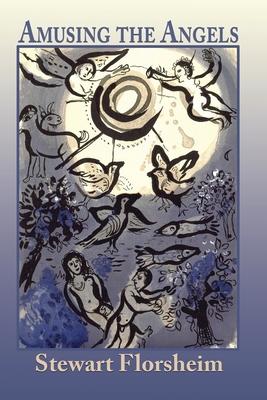
In this richly diverse mlange of human lives, many actual and many imagined, Stewart Florsheim embraces the light and the dark much as his beloved Rembrandt employed chiaroscuro to reveal the complexity of a single individual, and thus, all individuals. Florsheim's vision is encompassing, with room enough for the emotional convolutions of family, Holocaust survivors, spiritual seekers, intimate partners, world travelers, artists, and even total strangers. Taking his cue from Aristotle, and perhaps from the painters he admires, he approaches life from theparticular. Pulsing through the array of details is the tempered passion of someone who considers desire as "the trembling to be whole."
- Thomas Centolella, author of Almost Human
Here, as in his previous collections, Stewart Florsheim combines closely observed detail with moments of transcendence-sometimes metaphorical, other times supernatural-that conjure the lost world of European Jewry, the intimate sphere of his family life, and the lines of blood and spirit that connect the two. He steps into famous paintings as if through a looking glass and renders public events with evocative brushwork. Having read his poetry for more than thirty years, I am impressed by how consistent his body of work is and grateful for the rich worldview it provides.
- Scott Norton, author of Developmental Editing: A Guide for Freelancers, Authors, and Publishers, Second Edition (forthcoming 2023)
In his third full-length poetry collection from Blue Light Press, Stewart Florsheim wrestles with the possibilities and contradictions of what it means today to be a man. The child of a Holocaust survivor, he lends his poetic voice to the lost and dispossessed, "amusing the angels," perhaps, by evoking his forebears, with insight and tenderness, in all their flawedhumanity. Many of these poems can be read as prayers, as when he recalls his adolescent terror at facing the high jump in gym class, "hoping my wings won't get mangled/as I ascend above the trees/into the incandescent light." Without ignoring any of the familiar impulses orvanities of a husband, father, and successful man of the world, he nonetheless embraces the vulnerability of his anima. Making pesto with his daughter, he confides how much he loves the smell of basil, evoking Italian landscapes he hopes to share with her someday. His ekphrastic poems could be a volume all of their own, filled with the color, light, and stories of the paintings that come under his knowledgeable and imaginative gaze. Everything in daily life, from taking out the trash to sexual desire -"the trembling to be whole" - comes under the poet's lens as he strives to "discover the pleasures of being vigilant."- Barbara Quick, author of The Light on Sifnos and What Disappears
In this richly diverse mlange of human lives, many actual and many imagined, Stewart Florsheim embraces the light and the dark much as his beloved Rembrandt employed chiaroscuro to reveal the complexity of a single individual, and thus, all individuals. Florsheim's vision is encompassing, with room enough for the emotional convolutions of family, Holocaust survivors, spiritual seekers, intimate partners, world travelers, artists, and even total strangers. Taking his cue from Aristotle, and perhaps from the painters he admires, he approaches life from theparticular. Pulsing through the array of details is the tempered passion of someone who considers desire as "the trembling to be whole."
- Thomas Centolella, author of Almost Human
Here, as in his previous collections, Stewart Florsheim combines closely observed detail with moments of transcendence-sometimes metaphorical, other times supernatural-that conjure the lost world of European Jewry, the intimate sphere of his family life, and the lines of blood and spirit that connect the two. He steps into famous paintings as if through a looking glass and renders public events with evocative brushwork. Having read his poetry for more than thirty years, I am impressed by how consistent his body of work is and grateful for the rich worldview it provides.
- Scott Norton, author of Developmental Editing: A Guide for Freelancers, Authors, and Publishers, Second Edition (forthcoming 2023)
In his third full-length poetry collection from Blue Light Press, Stewart Florsheim wrestles with the possibilities and contradictions of what it means today to be a man. The child of a Holocaust survivor, he lends his poetic voice to the lost and dispossessed, "amusing the angels," perhaps, by evoking his forebears, with insight and tenderness, in all their flawedhumanity. Many of these poems can be read as prayers, as when he recalls his adolescent terror at facing the high jump in gym class, "hoping my wings won't get mangled/as I ascend above the trees/into the incandescent light." Without ignoring any of the familiar impulses orvanities of a husband, father, and successful man of the world, he nonetheless embraces the vulnerability of his anima. Making pesto with his daughter, he confides how much he loves the smell of basil, evoking Italian landscapes he hopes to share with her someday. His ekphrastic poems could be a volume all of their own, filled with the color, light, and stories of the paintings that come under his knowledgeable and imaginative gaze. Everything in daily life, from taking out the trash to sexual desire -"the trembling to be whole" - comes under the poet's lens as he strives to "discover the pleasures of being vigilant."- Barbara Quick, author of The Light on Sifnos and What Disappears
Paperback
$20.00